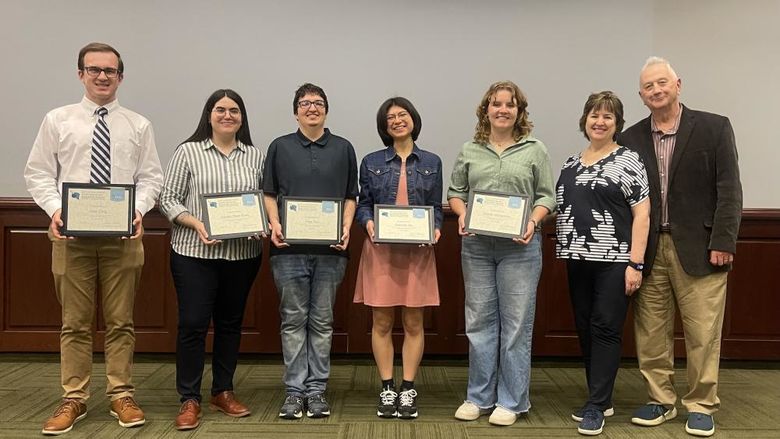
Associate Professor of Communication Arts and Sciences Susan Fredricks (left) and Assistant Teaching Professor of Communication Arts and Sciences Joshua Phillips recently presented research at the 18th Cross Cultural Research Conference, held in Puerto Rico.
MEDIA, Pa. — Higher levels of engagement in the political process may make citizens more willing to follow laws, according to faculty researchers at Penn State Brandywine.
Associate Professor of Communication Arts and Sciences Susan Fredricks and Assistant Teaching Professor of Communication Arts and Sciences Joshua Phillips recently presented their study, “Intercultural Public Power and Lawfulness: Is There a Correlation?” at the 18th Cross Cultural Research Conference in Puerto Rico.
“We looked at the power structure in predominantly democratic societies, some of which recently became democratic, and how that power influences whether or not people would obey the law,” said Fredricks. “As people have more access to the political process, they threaten those in positions of power. However, as the power distance between those in charge and the general masses decrease, people feel more involved in the political process and their community.”
“Our theory is that when people are part of a country that suppresses their freedom of speech and their ability to protest and vote, they're going to find illegal means to ‘have a say’ in the structure of their community,” added Phillips. “However, as countries became more democratic, people feel more ownership of their community and are more likely to obey laws.”
To conduct their study, Fredricks and Phillips interpreted data from the International Social Survey Programme, a cross-national program that completes annual surveys on diverse topics relevant to social sciences.
Through the database, the researchers were able to track people's attitudes toward whether or not they should follow the laws of their countries. Then, they looked at the information in a larger cultural context with regard to how the countries changed over time from a political standpoint. Countries they analyzed were Australia, Great Britain, Germany, Hungary, the Philippines and the United States.
So how did this unique project start for the faculty duo?
“I'm really interested in the issue of hierarchies,” said Phillips.
“And much of my research is focused on ethics,” added Fredricks, “so this collaboration was a perfect intersection of our research interests.”
Future plans for their research include narrowing the scope of the project by studying one specific country. By closely tracing the last several decades of a country's political history while following trends in regard to lawfulness in greater detail, Fredricks and Phillips hope to gain a deeper insight into the correlating factors.





